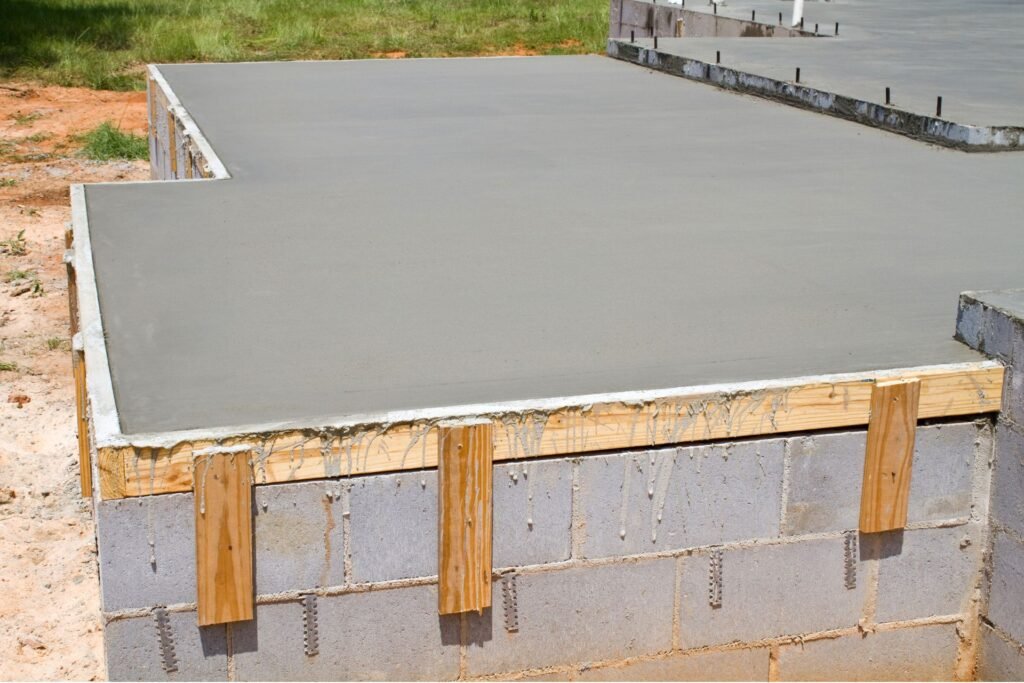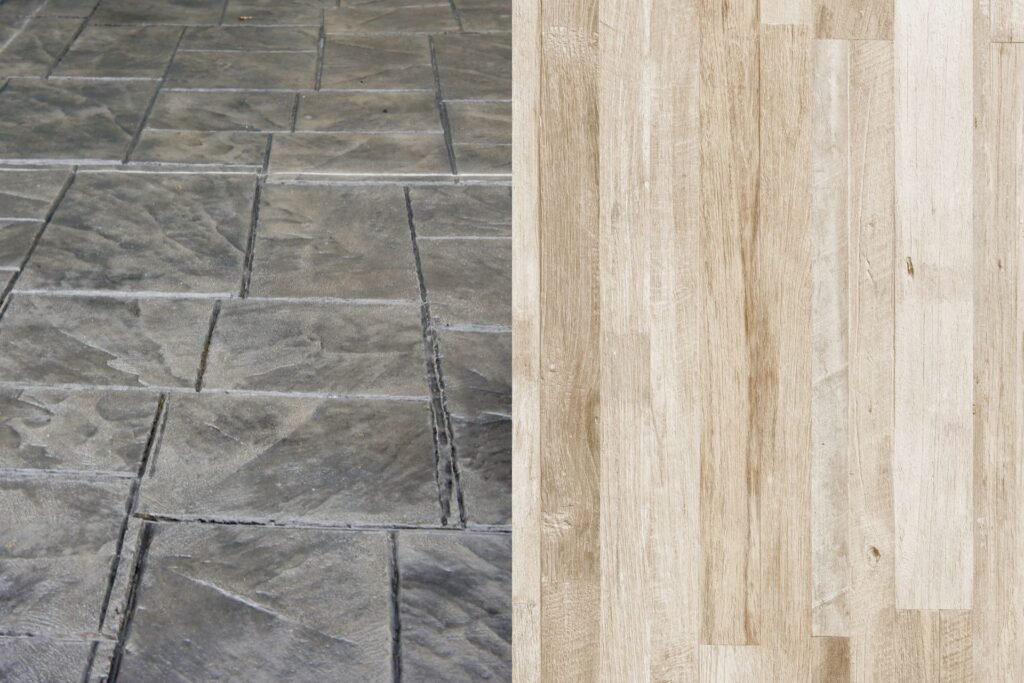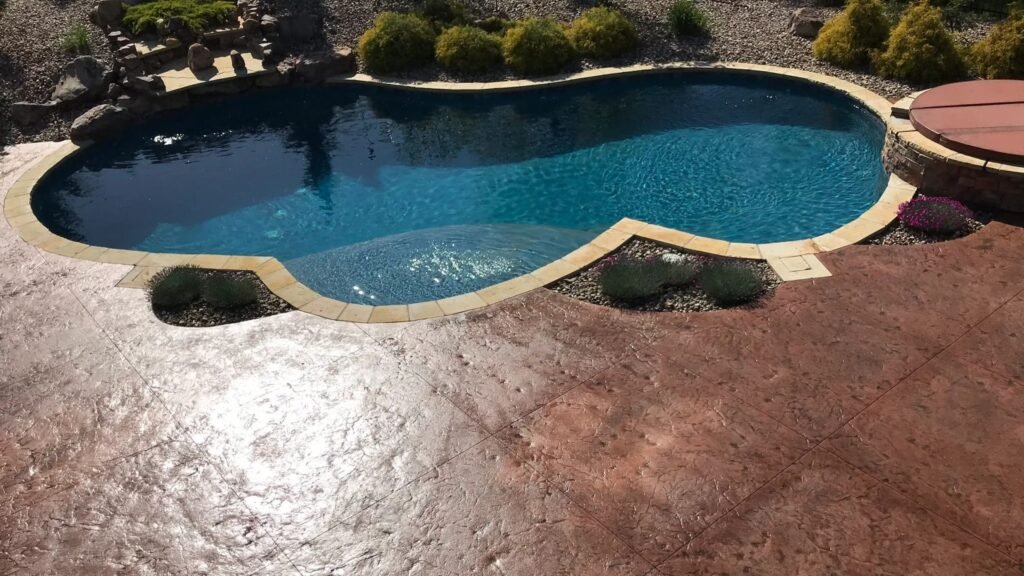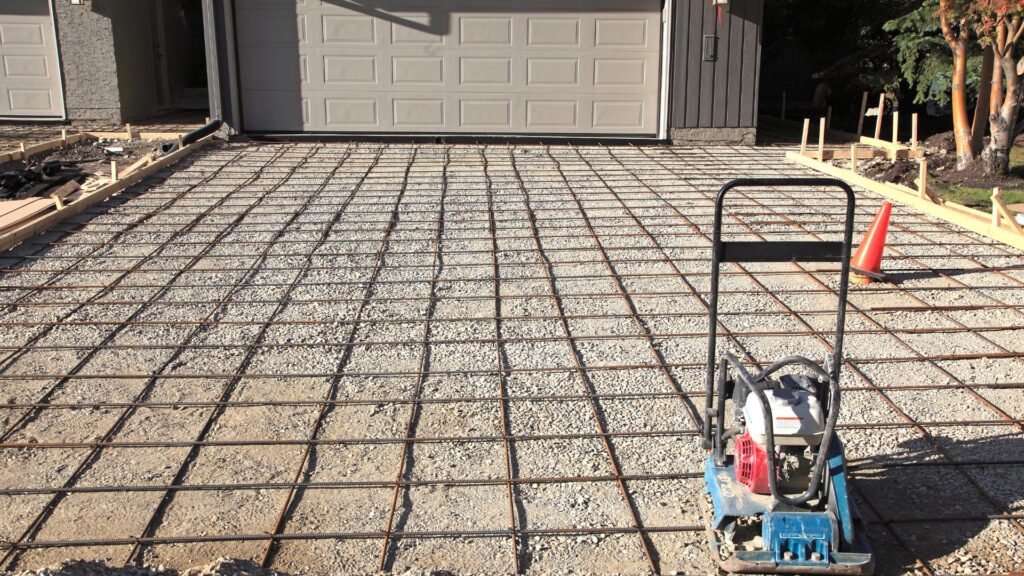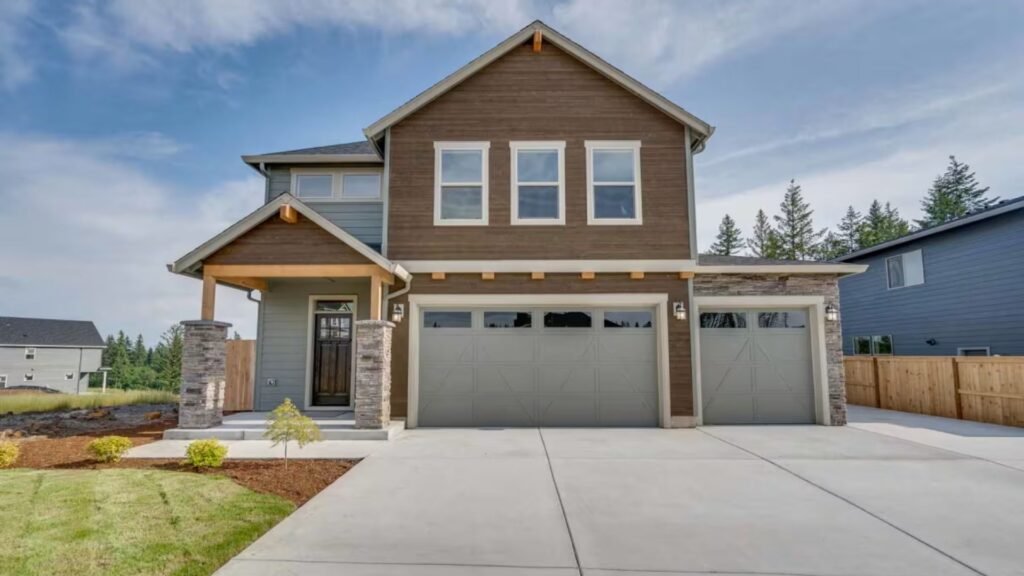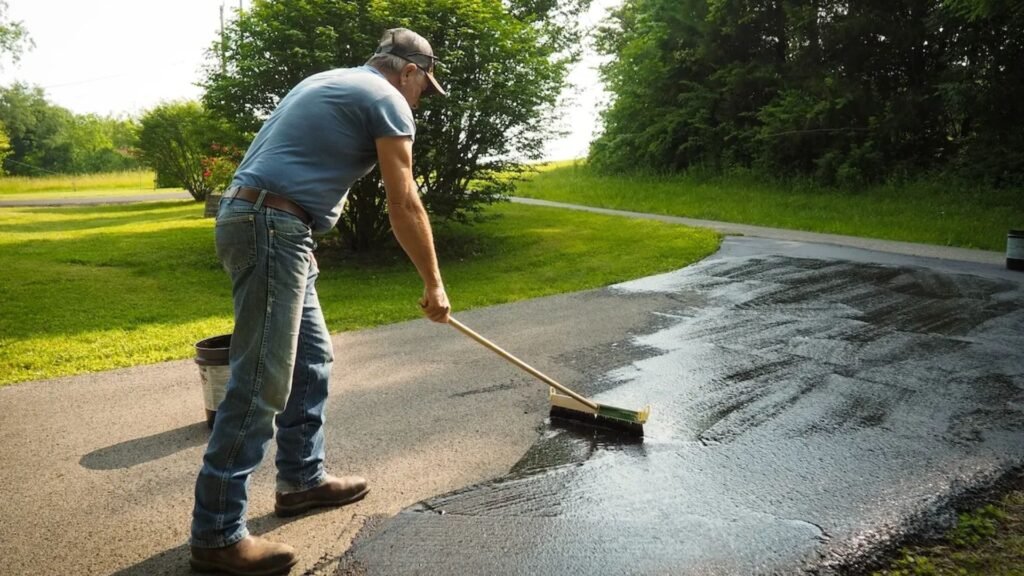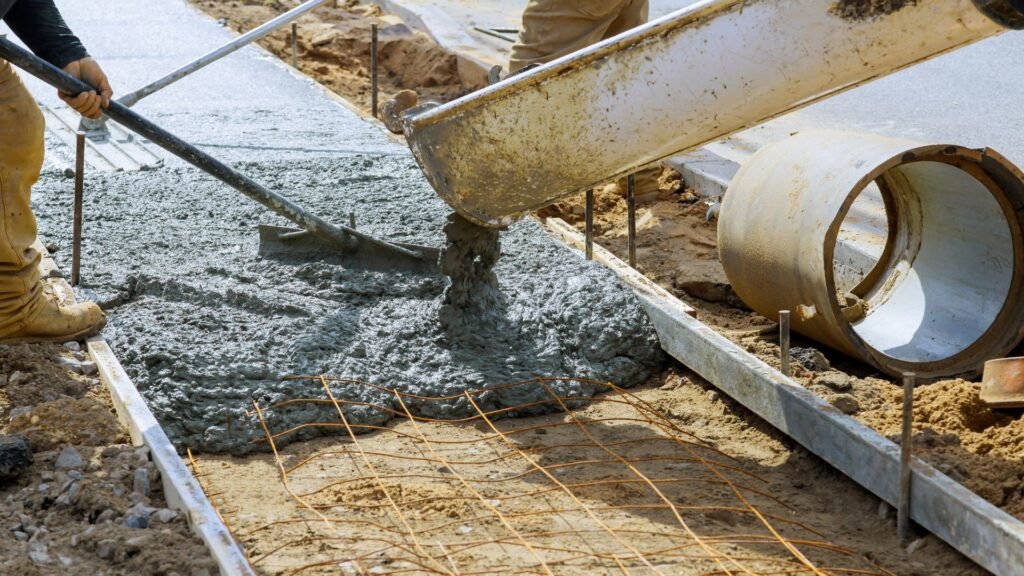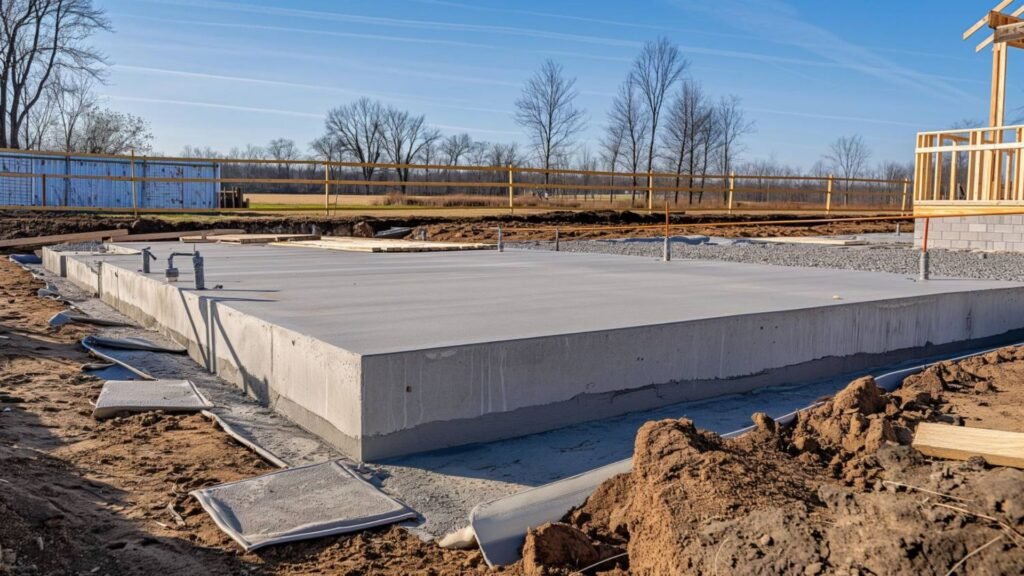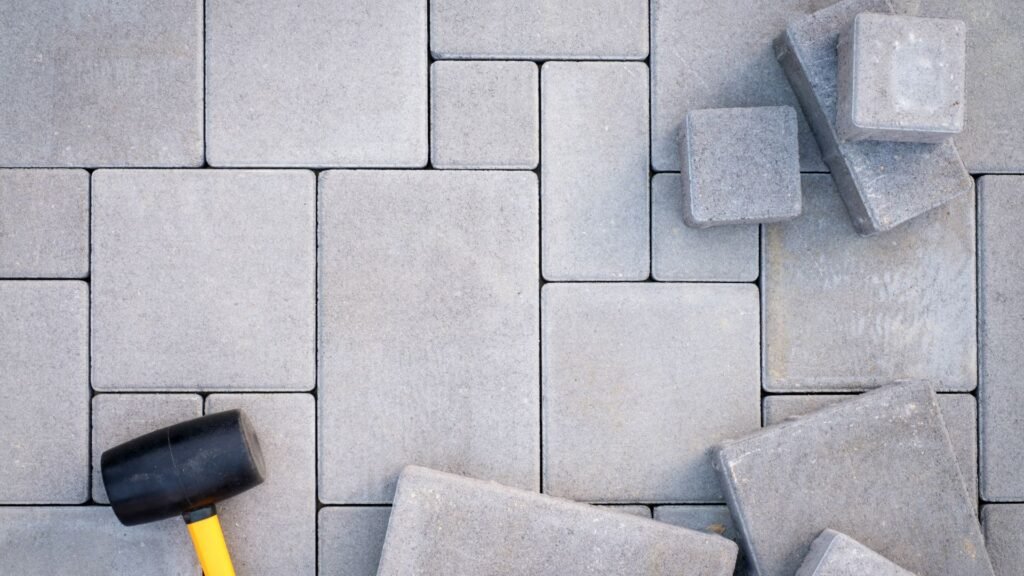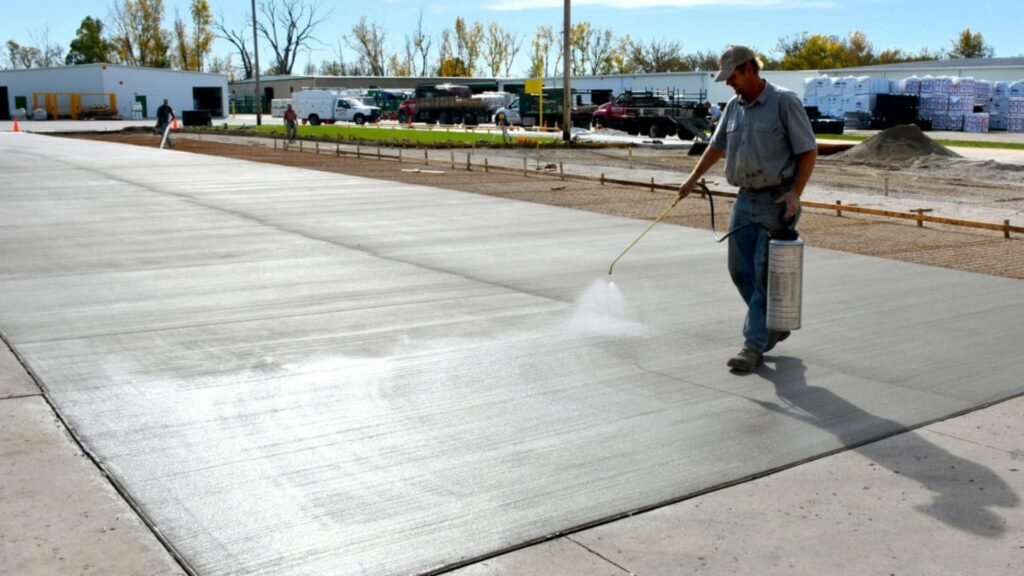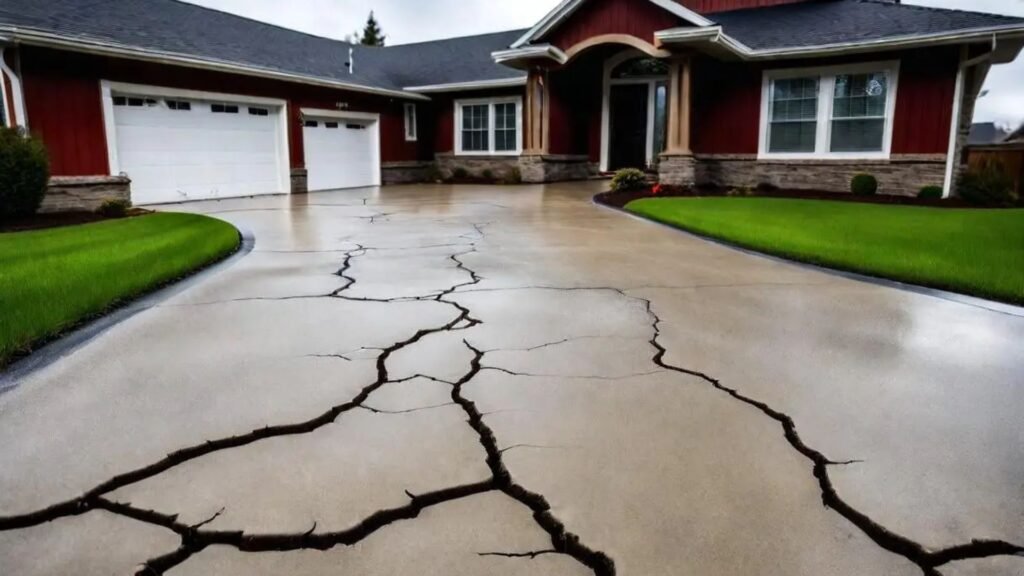Welcome to your ultimate guide on concrete slab foundation costs in New Zealand! If you’re planning to build or renovate a home, one of the most critical steps in the process is ensuring a strong, durable foundation, and concrete slabs are among the most popular choices here in NZ. In this post, we’ll dive into the factors that influence the cost of concrete slab foundations, such as size, location, soil conditions, and more. Whether you’re building a cozy home in Auckland or planning a larger project in Christchurch, understanding these costs will help you make informed decisions and plan your budget effectively. Let’s explore everything you need to know to get started!
On average, the cost of a concrete slab foundation in New Zealand ranges from $15,000 to $60,000 NZD, depending on factors such as the size of the home, soil conditions, and location. Smaller foundations for homes around 100m² typically cost between $15,000 and $25,000 NZD, while larger foundations for homes 200m² or more can exceed $40,000 NZD. Additional costs may include site preparation, reinforcement, and insulation.
Table of Contents
What Is A Concrete Slab Foundation?
A concrete slab foundation is a large, flat, horizontal surface made of poured concrete, typically used as the base for buildings. It forms a strong and stable foundation, which is crucial for supporting the structure above it. Concrete slab foundations are popular in both residential and commercial construction due to their durability, simplicity, and cost-effectiveness.
Types of Concrete Slab Foundations
1. Monolithic Slab: A monolithic slab is a single continuous pour of concrete, where the foundation and footing are formed simultaneously. This method is quicker and more affordable because it requires fewer steps and less labor. The term “monolithic” means “single pour,” which gives this slab type its name. It is popular for its straightforward installation and ability to provide a sturdy base in one go.
2. Two-Part Slab: In contrast to the monolithic slab, the two-part slab involves two separate concrete pours: one for the footings and one for the slab itself. The footings are poured first to establish a solid base for the walls, and then the concrete slab is poured over the top. This method is typically used when additional support is required for heavier structures or in specific soil conditions where added stability is necessary.
Why Concrete Slab Foundations Are Popular in New Zealand
Concrete slab foundations are especially popular in New Zealand for several reasons. Firstly, they offer excellent durability, capable of withstanding both natural wear and severe weather conditions over time. Their insulation properties are another key benefit, as concrete helps to regulate indoor temperatures by retaining heat during the colder months and maintaining coolness during warmer periods. This can lead to reduced energy costs for heating and cooling, making it an attractive choice for many homeowners.
Additionally, concrete slab foundations are relatively easy to install compared to other types of foundations, requiring fewer construction phases and less intensive labor. This makes them a more cost-effective option for builders and property developers across the country.
Link to Safety
New Zealand’s unique geological location makes earthquake preparedness a crucial consideration for any construction project. Concrete slab foundations offer enhanced structural integrity that can withstand the shifting ground during seismic activity. A sturdy and well-engineered slab foundation helps to evenly distribute the weight of the building, reducing the risk of damage during an earthquake. By using reinforced steel within the concrete, these foundations provide an extra layer of protection, ensuring that buildings remain safe and habitable in the long term.
In conclusion, concrete slab foundations are a versatile and reliable choice for construction in New Zealand, offering both practical benefits and essential safety features that help safeguard buildings against the challenges posed by the country’s natural environment.
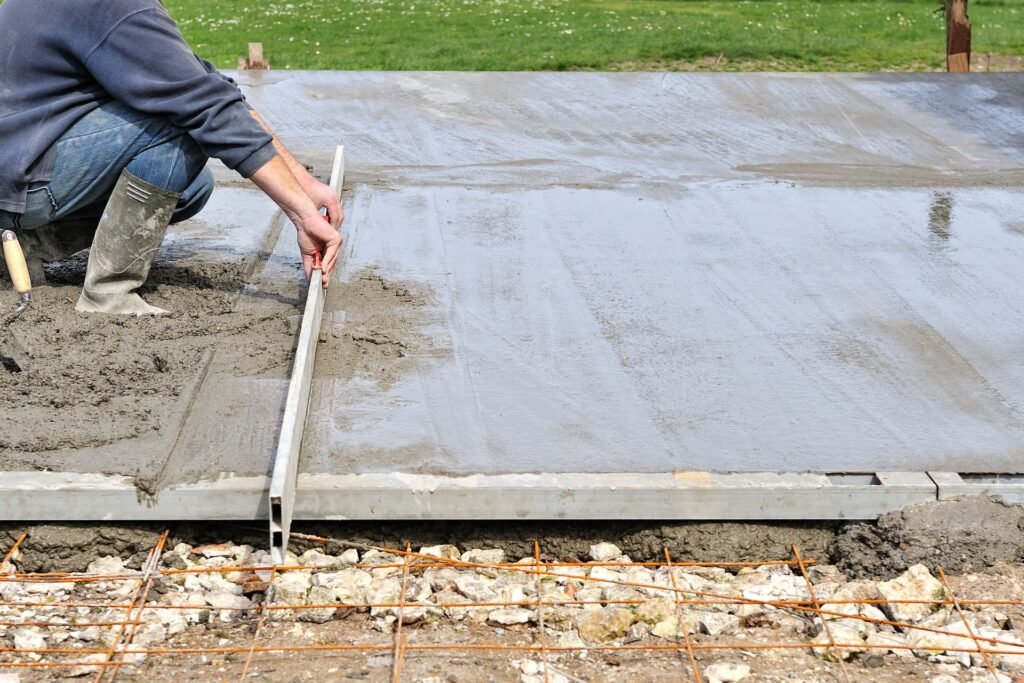
Factors Influencing Concrete Slab Foundation Cost In NZ
Building a home in New Zealand requires a sturdy foundation, and for most modern homes, a concrete slab foundation is the preferred choice. The cost of constructing a concrete slab foundation can vary widely depending on several factors. Below, we’ll delve into the key elements that influence the overall price of a concrete slab foundation, providing a comprehensive breakdown for those planning to build in New Zealand.
1. Size of the Foundation
The size of your foundation plays a crucial role in determining the total cost. Larger foundations naturally require more materials, including concrete, rebar, and labor. The cost per square meter generally decreases as the size increases, but the overall cost will still be higher for larger homes.
- Small homes (100 – 150 sqm): The cost for a small foundation can range from $10,000 to $20,000 depending on location and other factors.
- Medium homes (150 – 250 sqm): For a medium-sized home, expect to pay between $20,000 and $40,000.
- Large homes (250 sqm and above): Larger homes can see foundation costs starting at $40,000 and easily exceeding $60,000 if the design is complex.
2. Soil Conditions
Soil quality is a critical factor in determining foundation costs. In New Zealand, soil types can vary significantly, from sandy soils near coastal areas to denser clay soils inland. The type of soil affects the ease of excavation and the stability of the foundation.
- Stable soils: If the soil is firm and well-draining, it reduces the need for additional reinforcement, keeping costs lower.
- Unstable soils: Clay soils or areas prone to flooding may require additional work, such as soil testing or ground stabilization measures, adding $5,000 to $15,000 to the overall cost. Reinforcements such as deeper foundations or piles might also be necessary to prevent shifting or cracking, increasing both material and labor costs.
3. Location of the Build
Where you are building in New Zealand also has a significant impact on the cost of a concrete slab foundation. Urban areas such as Auckland, Wellington, and Christchurch tend to have higher labor and material costs due to demand and logistical factors, while rural areas might see lower labor costs but higher transport expenses for materials.
- Urban builds: In cities like Auckland, contractors might charge premium rates due to higher living costs and demand. Additionally, materials are more readily available, reducing transport costs.
- Rural builds: In contrast, rural areas may face additional costs related to transporting materials to the site, especially if the build is in a remote location. However, labor costs are often lower in these areas, which can balance out the overall expense.
4. Thickness and Design Complexity
The thickness of the concrete slab is another factor that influences the cost. Thicker slabs require more concrete, which increases both material and labor expenses.
- Thicker slabs: A standard concrete slab might be 100mm thick, but homes requiring thicker slabs for extra durability or insulation may see an increase in costs by up to 20-30%.
- Complex designs: Homes with unusual architectural features, such as multi-level foundations, integrated insulation, or sloping sites, will require more intricate foundation work. This complexity can significantly raise costs due to the additional time, materials, and expertise required.
5. Reinforcement Requirements
In New Zealand, building standards often require reinforced concrete foundations to provide additional strength, particularly in earthquake-prone areas. This reinforcement usually takes the form of steel rebar (reinforcing bars), which adds to the overall cost but is essential for long-term stability.
- Standard reinforcement: For a typical foundation, the cost of reinforcement might add 10-20% to the total cost of the slab.
- Earthquake standards: In regions like Wellington, which are more prone to seismic activity, building codes mandate higher levels of reinforcement, which can increase costs significantly. Expect to pay up to $5,000 to $10,000 more for enhanced reinforcement in such areas.
6. Labor Costs
Labor is a significant portion of any construction project, and in New Zealand, labor rates for foundation work can vary based on the contractor’s experience, the location of the build, and the complexity of the project.
- Average rates: On average, foundation specialists charge between $50 and $100 per hour. In urban areas like Auckland or Wellington, labor costs may be at the higher end of this spectrum, while in rural areas, you may find more affordable rates.
- Complex projects: If the foundation design is intricate or requires specialized skills (such as handling difficult soil conditions or reinforced slabs), labor costs will increase, as the project will take longer and require more expertise.
Several key factors influence the cost of a concrete slab foundation in New Zealand, from the size of the foundation to the location and soil conditions. Builders must also account for labor costs, material availability, and the need for reinforcements, especially in earthquake-prone regions. By understanding these variables, homeowners and developers can better anticipate the overall cost and ensure their budget aligns with the specific requirements of their project.
This guide serves as a foundation (pun intended) to help navigate the various elements that impact costs and offers a clearer picture of what to expect when planning a build in New Zealand.
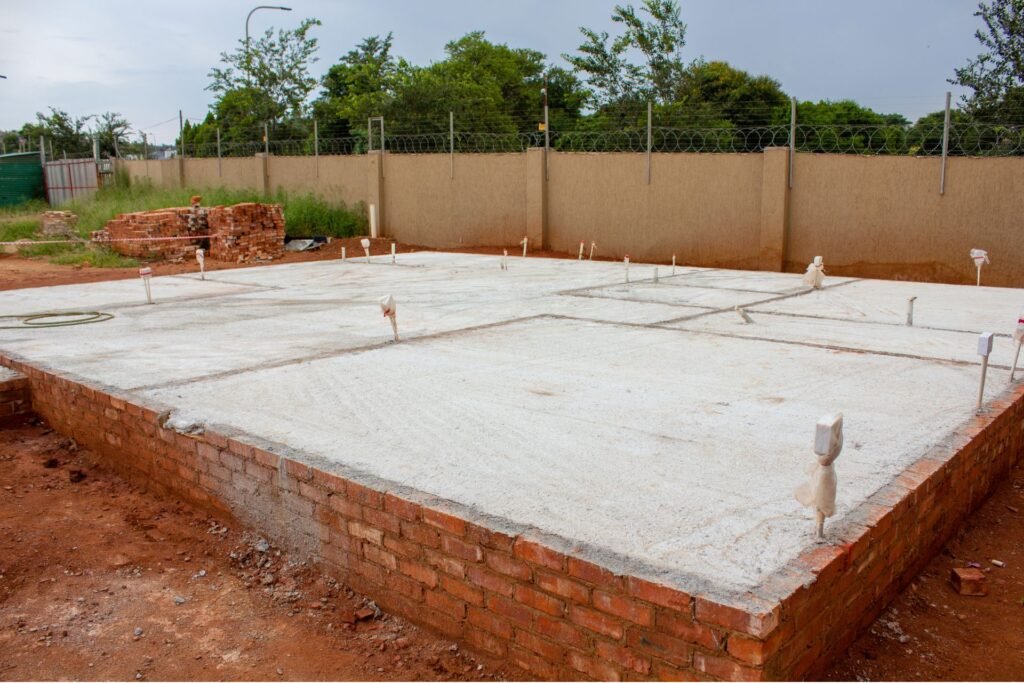
Average Concrete Slab Foundation Cost In NZ
When building a home in New Zealand, one of the critical components of the construction process is laying a solid foundation. A popular choice for homeowners and builders alike is the concrete slab foundation, valued for its durability and relative affordability. Understanding the costs involved in constructing a concrete slab foundation can help homeowners better plan their budget. Here’s a comprehensive breakdown of the average concrete slab foundation cost in NZ, including key factors that may influence these expenses.
Range of Costs
The cost of installing a concrete slab foundation can vary significantly based on the size of the home and the complexity of the design. Below are some general estimates for different house sizes:
- Small home (100m²): $15,000 – $25,000 NZD
- Medium home (150m²): $25,000 – $40,000 NZD
- Large home (200m²+): $40,000 – $60,000+ NZD
These figures provide a basic idea of the potential expenses, but individual projects may differ depending on various factors, which we will explore further.
Breakdown of Costs
Several components contribute to the overall cost of a concrete slab foundation. Let’s take a closer look at these elements:
1. Materials
- The main material required for a concrete slab foundation is, of course, concrete. However, the cost of concrete can vary depending on the quality, thickness, and specific type required for your project.
- In addition to concrete, reinforcement materials such as steel mesh or rebar are typically used to strengthen the foundation and ensure long-term stability.
- Insulation is often included to meet New Zealand’s building standards, which mandate certain levels of thermal performance in foundations, particularly in cooler regions.
- Depending on the specific design, waterproofing and moisture barriers may also be required to protect the foundation from ground moisture and to meet local building code requirements.
2. Labor
- Labor costs will vary depending on the complexity of the project and the region where you are building. Excavation is usually the first step in preparing the site for the foundation, and the depth and type of excavation will depend on soil conditions and the design of the slab.
- Once the site is prepared, the concrete pouring process requires skilled labor to ensure the mix is properly applied and leveled. After the concrete is poured, it must be finished with precision, which includes smoothing the surface and adding any necessary treatments or coatings.
3. Site Preparation
- Before the concrete slab is poured, proper site preparation is essential. This often includes soil testing to assess the stability and composition of the ground, which helps determine if additional measures (such as reinforcing the foundation) are necessary.
- Leveling the site is also a critical step, as any uneven areas can lead to issues down the line. Depending on the slope and condition of your land, this process can add to the overall cost.
Cost Variations by Region
Concrete slab foundation costs in New Zealand can vary depending on the location. Here are some of the factors that contribute to regional price differences:
1. Auckland vs. Dunedin
- In Auckland, you’re likely to see higher prices due to the overall cost of living, higher demand for construction, and possible shortages of labor. Additionally, as one of the country’s busiest construction markets, Auckland’s competitive environment can drive prices up.
- On the other hand, Dunedin and other regions in the South Island may offer slightly lower costs. However, this can also depend on the availability of local materials and specialized labor in those areas. In some cases, transportation of materials to remote areas can add to the total cost.
2. Economic Fluctuations and Supply Chain Issues:
- The cost of concrete and other construction materials can be influenced by economic factors such as inflation or global supply chain disruptions. For example, a shortage of key materials or an increase in demand can lead to price spikes.
- Additionally, international events or changes in trade policies can affect the price of imported materials, impacting the overall cost of your project.
Building a concrete slab foundation in New Zealand comes with a range of costs depending on the size of the home, complexity of the design, and location. While small homes may see foundation costs ranging between $15,000 and $25,000, larger homes can see figures upwards of $60,000. By understanding the breakdown of materials, labor, and site preparation costs, as well as how regional factors and economic conditions can affect pricing, homeowners can make more informed decisions when budgeting for their construction project.
Ensuring proper site preparation, using quality materials, and hiring experienced professionals will contribute to the long-term success and durability of your concrete slab foundation.
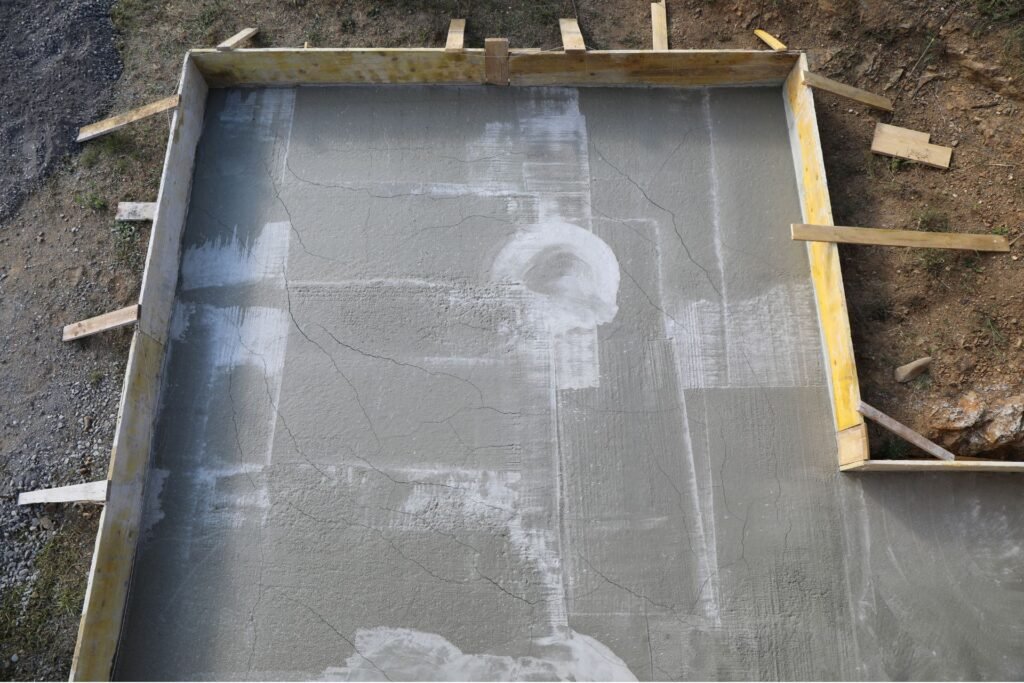
Additional Costs And Considerations
When planning any construction or renovation project, it’s crucial to factor in several additional costs that can significantly influence the total budget. While these expenses might not be immediately obvious, they play a critical role in ensuring the quality, safety, and longevity of your build. Below, we break down some of the most common extra costs and considerations that should be part of your financial planning.
1. Site Preparation Costs
Before you can begin laying a foundation, the site must be prepared properly. This includes excavation, land clearing, and soil grading, all of which can vary greatly depending on the terrain and condition of your property.
- Excavation: If the building site has uneven ground, hills, or large obstructions such as trees or rocks, excavation will be necessary. The complexity of this task can significantly increase costs. Sites with harder soil or rocky areas often require heavy machinery, which adds to labor expenses.
- Clearing: If your land is overgrown or contains large trees, clearing can become a costly undertaking. It may also involve the removal of old structures or debris from the site, which often requires specific equipment and experienced labor.
- Soil Grading: Proper soil grading ensures that the land is level and stable, which is vital for laying a solid foundation. Depending on your land’s condition, this might require additional soil, or removal of excess dirt, which can add another layer of cost.
These factors can not only add to your overall construction cost but also affect your timeline, as more complex sites will take longer to prepare.
2. Insulation and Underfloor Heating
Adding insulation or underfloor heating to your foundation is an excellent way to increase the energy efficiency of your home. However, these additions come with higher upfront costs, which need to be considered early in the planning process.
- Insulation: High-quality insulation helps keep your home warm in the winter and cool in the summer, reducing the need for excessive heating and cooling. While insulation materials and installation add to the initial construction cost, they can lead to significant savings on energy bills over time. It’s an investment in long-term energy efficiency and comfort.
- Underfloor Heating: Installing underfloor heating systems can increase your costs, as they require special materials and professional installation. Despite the higher upfront costs, underfloor heating can offer substantial energy savings. Additionally, it provides consistent heat distribution, enhancing comfort and potentially increasing the value of your property.
By improving energy efficiency, these systems may pay for themselves over time through reduced utility bills, but the initial investment is something to budget for.
3. Waterproofing
Ensuring that your foundation is properly waterproofed is essential, especially if your property is in an area prone to heavy rain, flooding, or high water tables. Poor waterproofing can lead to long-term issues such as structural damage, mold, and even health problems.
- Foundation Waterproofing: The process typically involves adding waterproof membranes, drainage systems, and sealants to prevent water from seeping into the foundation. This is especially important for homes in areas with frequent rainfall or where the water table is high.
- Cost of Waterproofing: While the cost of waterproofing varies depending on the size of the foundation and the materials used, it is a necessary expense that can save you thousands in repairs down the line. Waterproofing a foundation typically adds a few thousand dollars to the overall budget but can prevent costly damage and preserve the integrity of your home for years.
Proper waterproofing is a small price to pay for the peace of mind that comes with knowing your home is protected from water damage.
4. Permits and Compliance
No matter the size or scope of your project, you’ll need to ensure that you comply with local building regulations. In New Zealand, obtaining the necessary building consent is a legal requirement for most construction activities, including foundation work.
- Building Consent Requirements: The New Zealand Building Act mandates that most foundation work, such as laying new slabs or reinforcing existing structures, requires a building consent. The application process can be time-consuming and may require detailed plans, inspections, and approvals from local councils. Be prepared to work closely with professionals who can guide you through this process.
- Cost of Permits: The cost of obtaining building consent can vary widely depending on the size and complexity of the project, with prices typically ranging from a few hundred to several thousand NZD. It’s essential to factor these fees into your overall budget, as non-compliance can lead to costly delays or fines.
Additionally, keeping your project compliant with all relevant building codes ensures that your foundation is safe, durable, and up to the legal standards, protecting you from potential legal issues in the future.
When planning a construction project, overlooking these additional costs can lead to unexpected expenses and delays. Site preparation, insulation, waterproofing, and building compliance are all essential components that ensure your foundation is safe, durable, and energy-efficient. While these costs may increase your initial budget, they often lead to long-term savings and a higher-quality build.
By carefully considering these factors in advance, you can set more accurate budget expectations, avoid surprises, and ensure a smoother building process from start to finish.
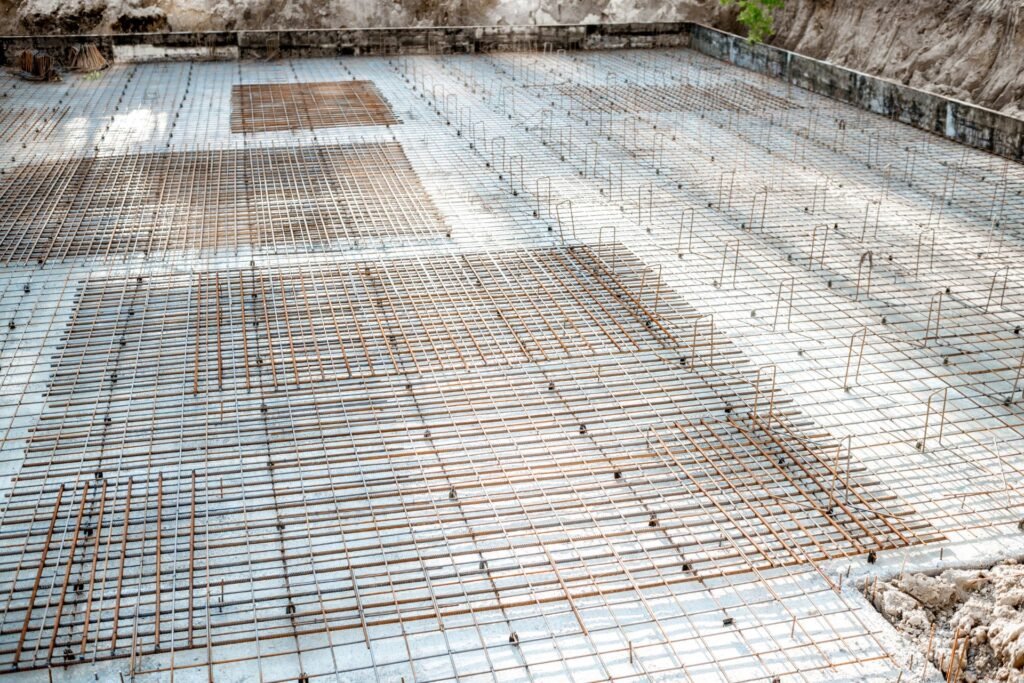
How To Save Money On Concrete Slab Foundations
When planning a construction project, one of the significant costs you’ll encounter is the concrete slab foundation. While it’s essential to ensure a high-quality, durable foundation, there are strategic ways to cut down on costs without compromising on the structure’s integrity. Here are several actionable tips to help you save money on your concrete slab foundation:
1. Get Multiple Quotes
One of the most effective ways to save money on your concrete slab foundation is by obtaining multiple quotes from contractors. This step allows you to compare prices and find the best deal for your budget.
- Why multiple quotes matter: Contractors often price their services differently based on factors like materials, labor, and even their current workload. By gathering several estimates, you can identify a competitive rate while ensuring you’re not overpaying.
- Balance cost and quality: It’s important not to choose a contractor solely because they offer the lowest price. Cheap services can sometimes mean compromised quality or hidden costs down the road. Look for a contractor who offers a fair price and has a solid reputation for delivering quality work.
To maximize savings, ask contractors for a detailed breakdown of their quote, including material costs, labor, and any potential additional fees. This can help you better understand where your money is going and where you might negotiate for savings.
2. Consider Standard Designs
Opting for a standard concrete slab design rather than a custom one can be a great way to save money.
- Simplicity saves: Standard designs are usually quicker and easier to install, meaning contractors will spend less time on the job, reducing labor costs. They also tend to require fewer specialized materials, which helps keep expenses down.
- Less risk, more savings: Custom slab designs may involve more intricate work, which increases both time and labor costs. Additionally, custom slabs may require specific engineering or design services, further driving up the price.
By sticking to a standard slab design, not only will you save on the initial foundation cost, but you’ll also reduce the risk of complications or delays during construction, both of which could add unexpected expenses.
3. DIY Site Preparation
Another effective way to cut costs is by taking on some of the site preparation yourself. While the actual laying of the slab should be left to professionals, there are non-specialized tasks you can handle that don’t require expert skills.
- Land clearing: You can save money by removing vegetation, debris, or obstacles from the site yourself. Hiring professionals for this task can add up quickly, so doing it yourself is a good way to lower your total bill.
- Basic leveling: Depending on the terrain, simple grading or leveling of the land may be within the abilities of an ambitious DIYer. Renting equipment like a shovel, rake, or even a small bulldozer can be much cheaper than paying for a contractor’s crew to handle the same work.
Before diving into DIY site preparation, it’s wise to consult with your contractor. They can help you understand what’s feasible for you to do on your own and what’s best left to professionals.
4. Schedule Efficiently
Timing can play a crucial role in how much you spend on a concrete slab foundation. Working around your contractor’s schedule can sometimes lead to significant savings, especially if you’re flexible.
- Off-peak seasons: Many contractors have busy periods, often during the warmer months when construction is in high demand. By scheduling your project during an off-peak season, you might be able to secure a lower rate. Contractors may offer discounts to fill gaps in their schedule during slower periods.
- Avoid delays: While waiting for a lower-rate season might seem appealing, there’s a potential risk of weather-related delays. Harsh weather conditions can cause construction costs to rise, particularly if the project gets postponed or damaged by rain, snow, or frost. Additionally, waiting too long could also mean higher prices for materials if market rates fluctuate.
By scheduling your project efficiently and discussing timing with your contractor, you can avoid unnecessary delays and capitalize on lower labor rates.
Building a concrete slab foundation doesn’t have to break the bank. By following these tips—seeking multiple quotes, opting for standard designs, tackling some of the preparation work yourself, and scheduling your project efficiently—you can reduce costs without sacrificing quality. Smart planning and strategic decision-making are key to keeping your foundation project on budget while ensuring a strong, long-lasting base for your home or building.
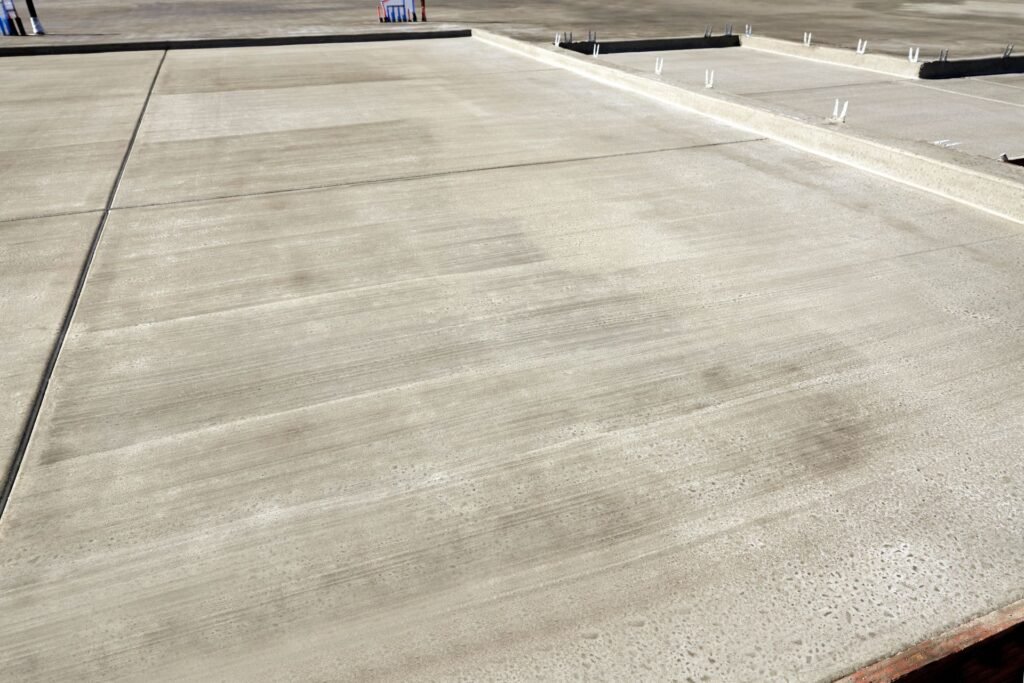
FAQs: About Concrete Slab Foundation Cost NZ
How much does a concrete slab foundation cost in New Zealand?
The cost of a concrete slab foundation in New Zealand typically ranges from $15,000 to $60,000 NZD, depending on factors like the size of the home, soil conditions, location, and whether additional features like insulation or waterproofing are included. Small home foundations (around 100m²) may cost between $15,000 and $25,000 NZD, while larger homes (200m²+) can exceed $40,000 NZD.
What factors influence the cost of a concrete slab foundation in NZ?
Several factors affect the cost of a concrete slab foundation in New Zealand. These include the size of the foundation, soil conditions, location of the build (urban vs. rural), the thickness of the slab, the need for reinforcements, and labor costs. Site preparation, permits, and additional features like insulation or underfloor heating can also increase the total cost.
Are there different types of concrete slab foundations?
Yes, there are two main types of concrete slab foundations commonly used in New Zealand: monolithic slabs and two-part slabs. A monolithic slab is a single pour of concrete that includes the slab and the footings, while a two-part slab involves separate pours for the footings and the slab. Each type varies slightly in terms of cost and construction time.
How do soil conditions affect the cost of a concrete slab foundation?
Soil conditions play a significant role in determining foundation costs. In New Zealand, soil types can vary from sandy soils to clay, which can impact the stability of the foundation. If the soil is unstable or requires reinforcement, additional site preparation and structural supports may be needed, increasing the cost.
Can I save money on a concrete slab foundation by doing part of the work myself?
While most of the foundation work requires professional expertise, you may be able to reduce costs by handling some aspects of the site preparation yourself, such as clearing the land or basic leveling. However, it’s essential to ensure that any DIY work meets local building standards to avoid costly delays or repairs later.
How long does it take to install a concrete slab foundation?
The installation of a concrete slab foundation typically takes about 2 to 3 weeks from start to finish, depending on the complexity of the project and weather conditions. This timeline includes site preparation, excavation, forming, pouring the concrete, and curing time, which can take up to a week for the slab to fully harden.
Do I need insulation or waterproofing for my concrete slab foundation?
Insulation and waterproofing are not mandatory but highly recommended, especially in colder or wetter regions of New Zealand. Insulation helps improve energy efficiency and comfort, while waterproofing protects the foundation from moisture damage, which is essential in areas prone to heavy rainfall or flooding. These features can add to the cost but provide long-term benefits.
Is a concrete slab foundation suitable for earthquake-prone areas?
Yes, concrete slab foundations can be suitable for earthquake-prone areas like New Zealand, but it’s important to ensure the foundation is properly reinforced according to NZ building standards. Steel reinforcement (rebars) and proper design help make the slab more resistant to seismic activity, offering greater stability during an earthquake.
Do concrete slab foundations crack, and how can I prevent it?
Cracks in concrete slab foundations can occur, especially if the slab isn’t properly poured or cured. Factors like soil movement, temperature changes, or insufficient reinforcement can contribute to cracking. To prevent this, ensure the foundation is laid by experienced professionals, and consider reinforcing the slab with steel bars and control joints to manage any movement.
What permits are required for building a concrete slab foundation in NZ?
In New Zealand, building a concrete slab foundation typically requires a building consent, which ensures the project complies with the New Zealand Building Code. You’ll need to apply for this consent through your local council before starting any work. Additional inspections may be required throughout the process to ensure the foundation is up to standard.
Conclusion
In conclusion, it’s essential to understand the key factors influencing the cost of concrete slab foundations in New Zealand, including material prices, labor costs, site conditions, and foundation size. While it’s tempting to focus on minimizing costs, ensuring high-quality materials and proper safety standards is crucial for the longevity and stability of your foundation. It’s always a good idea to consult with experienced contractors who can offer expert advice and help you make informed decisions. Before committing to a project, take the time to research and gather multiple quotes to ensure you’re getting the best value for your investment. For personalized advice or a detailed quote, consider reaching out to a local contractor or foundation expert. You can also explore more content about home building costs in New Zealand to stay well-informed before starting your project.
About the Author:
Mike Veail is a recognized digital marketing expert with over 6 years of experience in helping tradespeople and small businesses thrive online. A former quantity surveyor, Mike combines deep industry knowledge with hands-on expertise in SEO and Google Ads. His marketing strategies are tailored to the specific needs of the trades sector, helping businesses increase visibility and generate more leads through proven, ethical methods.
Mike has successfully partnered with numerous companies, establishing a track record of delivering measurable results. His work has been featured across various platforms that showcase his expertise in lead generation and online marketing for the trades sector.
Learn more about Mike's experience and services at https://theleadguy.online or follow him on social media:
